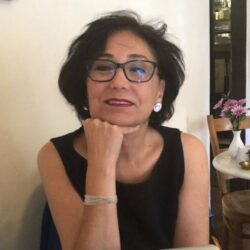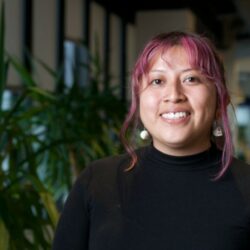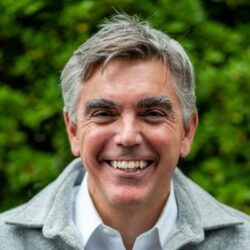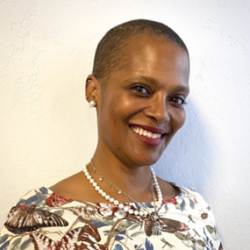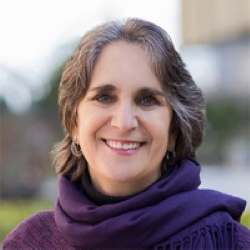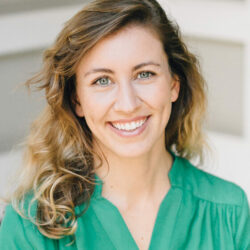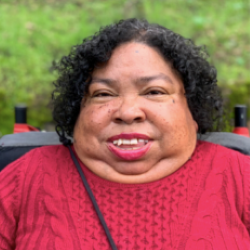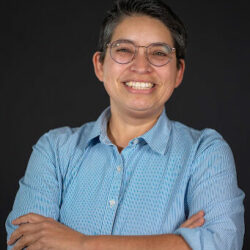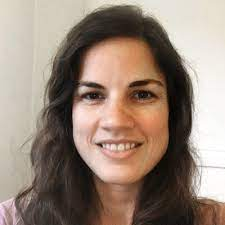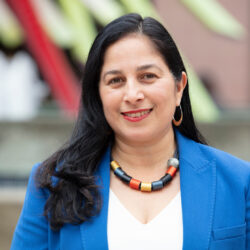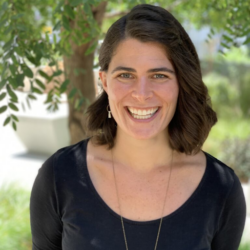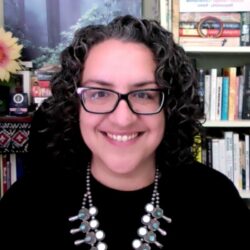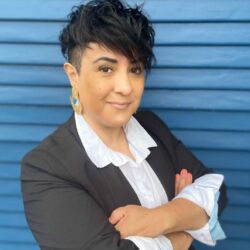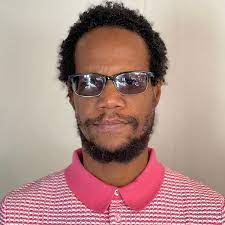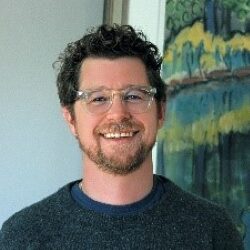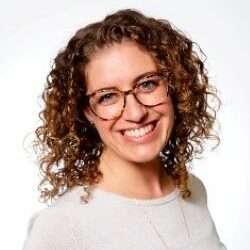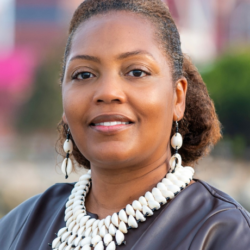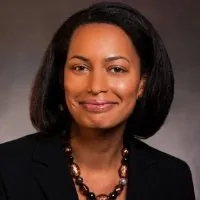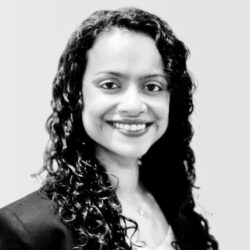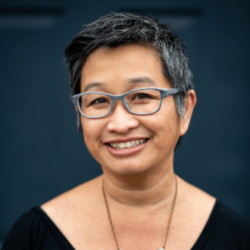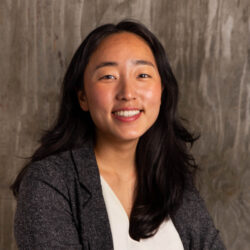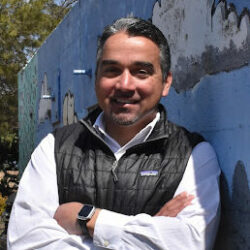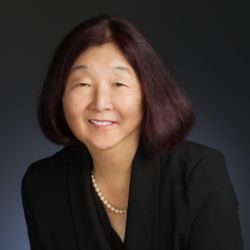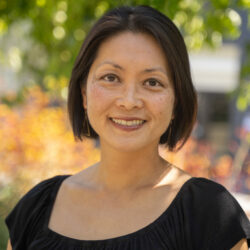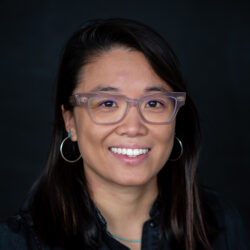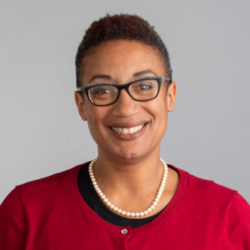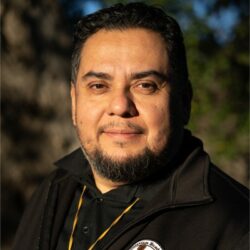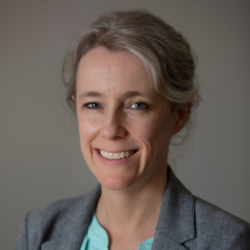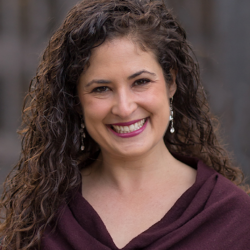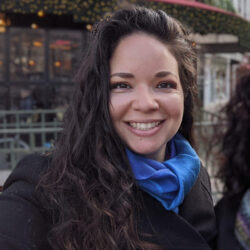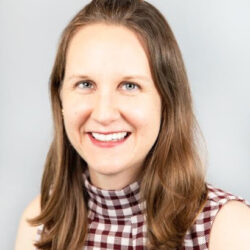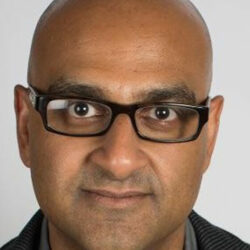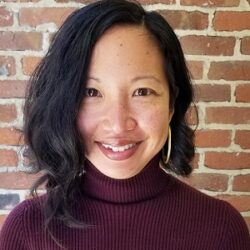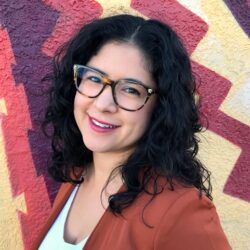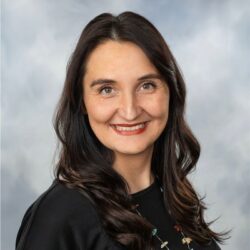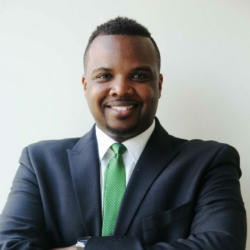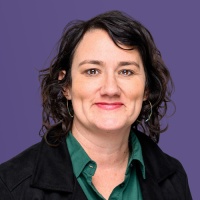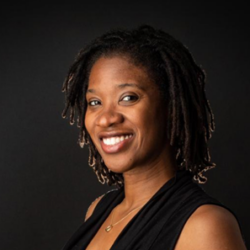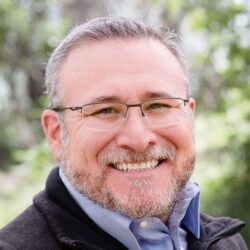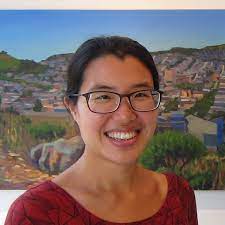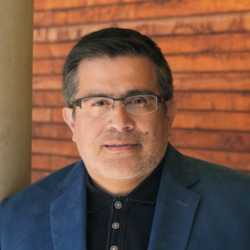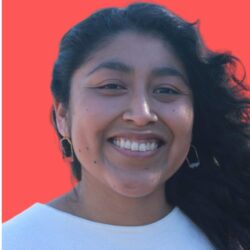November 8, 2023
Oakland, California
Thank you for making 2023 our most successful conference to date!
Welcome to Bay Area AFN’s annual conference!
Join us this year to discover how funders, policy makers, advocates and practitioners can be a part of the movement for economic justice. Our dynamic sessions and collaborative workshops will highlight intersectional issues around economic justice and how we can collectively move towards a more just future in which all Californians can thrive.
The 2023 conference is co-hosted by:

Thank you to our sponsors:
Leadership


Sustainer

Contributor

Bay Area AFN Steering Committee
Blue Shield of California Foundation
East Bay Community Foundation
Kaiser Permanente
Silicon Valley Community Foundation
The California Wellness Foundation
The San Francisco Foundation
The Sobrato Family Foundation
Y & H Soda Foundation
- Member Regular Price: $150
- Non-Member Grantmakers: $250
- Nonprofit Community-Based Organizations: Free
Questions? Contact Beth Yeap at beth@assetfunders.org
When:
Wednesday, November 8, 2023
8:30am to 4:00pm PST
Where:
The California Endowment
2000 Franklin Street | Oakland, CA
Accessibility
Bay Area AFN is committed to making our 2023 conference accessible to everyone. Should you require accessibility assistance at this conference, please let us know your needs in detail during registration. AFN will make every effort to provide appropriate accommodations. Please email beth@assetfunders.org with any questions.
Transfer/Refund Policy
CANCELLATIONS: Cancellation requests must be submitted via the registration system and must be received by 5:00 PM (PST) on November 1, 2023 for a partial refund. A cancellation fee of $25 based on price paid will be assessed to cover administrative costs.
REFUNDS: Registration fees will not be refunded for cancellations after 5:00 PM (PDT) on November 1, 2023.
TRANSFERS: We regret that we cannot offer refunds for “no shows.” However, you are able to transfer your registration without a penalty. Please contact beth@assetfunders.org to transfer your ticket.
Solicitation Free Statement
Asset Funders Network seeks to work and learn together openly. With gratitude, we engage veteran practitioners, sought-after experts, and newcomers with fresh perspectives to tackle the pressing economic equity issues facing America’s communities. Through our events, we offer grantmakers a space to host candid conversations and offer opportunities to leverage network members to create promising and strategic investments and actions. To maintain a distraction-free environment that fosters collaborative work, AFN asks that all participants respect this space and refrain from solicitation of grants, fund management, or investment requests of any kind.
COVID-19
All participants will be asked to sign a COVID-19 waiver as part of the registration process. AFN will not require proof of vaccination or a negative test prior to the event. However, all COVID protocols are subject to change based on the City of Oakland and The California Endowment’s requirements.
AFN encourages anyone who is autoimmune compromised to take the proper precautions when attending the conference.
More information about The California Endowment’s safety policies can be found on their website.
8:30am – 9:00am
Breakfast and Registration
9:00am – 10:00am
Morning Plenary
Unlocking Philanthropy to Authentically Drive Economic Justice
Dr. Martin Luther King, Jr. stressed that “The problems of racial injustice and economic injustice cannot be solved without a radical redistribution of political and economic power.” Lasting change requires that our democratic institutions and economy work for everyone, not just a few. Power building is an essential part of this change.
Join us for this opening plenary session where we will delve into a dynamic conversation with experts with lived experience, grantmakers and philanthropy experts making impactful changes centered in economic justice. Collectively the panelists will provide valuable insights, backed by data and compelling stories which present opportunities for catalytic transformation from our current extractive system to one centering equity. Discover how innovative grantmaking and impact investment can fuel movement-led initiatives, enabling communities to take control of their economic destinies and address the root causes of economic inequality and ultimately help participants better understand how philanthropy can support a more equitable economy using an economic justice lens.
Speakers
Gabrielle Uballez, Asset Funders Network
Tina Eshaghpour, The California Wellness Foundation
Maria Nakae, Justice Funders
Tash Nguyen, Restore Oakland
10:15am – 11:30am
Breakout Sessions I
Nonprofit Jobs Can and Should be Pathways to the Middle Class (but too often aren’t)
LAUREL ROOM
Nonprofit jobs can and should be pathways out of poverty, especially as the field recognizes the importance of those working in community organizing and direct service reflecting the communities they serve. And yet nonprofit wages are notoriously low and benefits are not guaranteed in some of the most demanding and critical jobs in the sector like early childhood care, family services, community organizing, and homeless outreach.
The quality of these jobs is, in many ways, dictated by the parameters of philanthropic funding and government grants and contracts. These funding sources have kept wages low through, among other factors, unrealistic expectations around impact and onerous requirements around reporting and compliance. At the same time, we’ve seen interventions into nonprofit job quality provide much-needed wage increases while also creating unintended consequences like wage compression and disparity across organizations.
This roundtable will be a share out from a group of local funders who have sought to understand and make progress against the challenge of ensuring nonprofit jobs are quality jobs.
Speakers
Leslie Payne (moderator), James Irvine Foundation
Rob Hope, ReWork the Bay
Pui Ling Tam, Walter & Elise Haas Fund
Jan Masaoka, California Association of Nonprofits (CalNonprofits)
Black-led Solutions for Health, Housing and Asset Building
EASTMONT ROOM
The Black Housing Advisory Taskforce also known as Black HAT, has created several solutions to change the material condition of Black people in California. Black HAT is made up of Developers, CBOs, lenders, regional strategists, and economic development specialists. One of the solutions is asset-based community development. Black people are moving from the historically Black legacy communities for affordability and the opportunity of homeownership. There hasn’t been a statewide or policy response around keeping Black people in place and building wealth. Some may see this as a disparity, but there is an opportunity to build wealth with the needs and resources of Black people at the center. Asset development helps to create opportunities for greater independence and financial stability. The panel will explore asset development for Black people in California. We hope to help participants understand the significance of establishing a Statewide Black Housing Fund, Black Home Ownership, Cultural Community Development, and Black–led Development. The dialogue will explore how utilizing public and philanthropic dollars will give access and flexibility to Black Californians to generate assets and wealth for themselves.
Speakers
Nikki Beasley, Richmond Neighborhood Housing Services
Judith Bell, San Franciso Foundation
Melissa Jones, Bay Area Regional Health Inequities Initiative
Regina Williams, Silicon Valley at Home (SV@Home)
Building Inclusive Economies for Latino Immigrant Communities
UPTOWN ROOM
This workshop is designed to highlight the critical work being done by non-profit organizations in Oakland as well as the Central Coast to build inclusive economies for Latino immigrant communities. The focus will be on how these organizations are working hand in hand with community leaders to create pathways to economic stability and financial independence for marginalized communities through entrepreneurship.
The workshop will discuss how cooperative development and cooperativism is a viable strategy for creating economic stability and financial independence for Latino immigrant communities. Participants will learn about the principles and benefits of cooperatives, land trust, and business ownership and how they can be used to build community power. The workshop will also feature success stories of alternative businesses that have been established in the region, and participants will have the opportunity to explore how they can support and participate in these efforts in their own communities.
Participants will be able to engage in dialogue and exchange ideas on how to further support and uplift Latino immigrant communities in the region. The goal is to build stronger, more resilient communities that are able to thrive in the face of growing inequities, outdated immigration policy, and external economic challenges.
Topics covered will include:
- Understanding the challenges faced by Latino immigrant communities in Oakland and the Central Coast
- Overview of non-profit organizations working to build inclusive economies for these communities
- Best practices in cooperative development and land ownership
- Success stories from community leaders who have benefited from these programs
- Opportunities for collaboration and community building
This workshop is ideal for philanthropy, community organizers, non-profit leaders, policymakers, and anyone interested in supporting economic development in marginalized communities. By attending, participants will gain a deeper understanding of the challenges faced by Latino immigrant communities in the region and how non-profit organizations are working to build sustainable economies that work for everyone.
Speakers
Nallely Martinez (moderator), Latino Community Foundation
Claudia Arroyo, Executive Director, Prospera
Maria Cadenas, Executive Director, Ventures
David Mancera, Director of Ecosystem Building, Kitchen Table Advisors
Advancing Racial Equity Through Native-Owned and Led Financial Institutions
ELMHURST
Native-owned and led financial institutions are instrumental in promoting economic self-determination, fostering financial well-being, and advancing the economic interests of Native American communities. Through their community ties, cultural impact, and collaborative efforts, these institutions contribute significantly to closing the racial wealth gap and creating economic opportunities for Native American individuals and businesses.
Advancing racial equity through Native-owned and led financial institutions requires a comprehensive approach that addresses economic disparities, fosters empowerment, and promotes community development. By leveraging their unique position and resources, these institutions can contribute significantly to creating a more equitable and just society for Native American communities.
Join us as panelists share key strategies and insights by Native led organizations including Increasing Access to Capital; Building Collaborative Partnerships, Developing Culturally Responsive Services; Research and Data Collection; Advocating for Equitable Policies and more!
Speakers
Paulina Gonzalez-Brito, Rise Economy (formerly CRC) (moderator)
Rudy J. Ortega, Jr., Fernandeño Tataviam Band of Mission Indians
Melissa Riley, Ph.D., Native Community Development Associates
Lakota Vogel , Four Bands Community Fund, Inc.
11:30am – 12:15pm
Lunch
12:15pm – 1:00pm
Lunch Plenary
Brandi Howard and Nwamaka Agbo in Conversation
Speakers
Brandi Howard, President and CEO, East Bay Community Foundation
Nwamaka Agbo, CEO, Kataly Foundation
1:15pm – 2:30pm
Breakout Sessions II
Home Care When the Rent's Due: A Black-Centered Care Campaign for ALL Californians
EASTMONT ROOM
During this session we will:
- Share the lessons learned to date for Care Can’t Wait California (CCW CA), a coalition dedicated to building an equitable care infrastructure including affordable, accessible child care and home and community-based services for older adults and people with disabilities; support for family caregivers such as paid sick leave and paid family leave; and good jobs for workers in the care economy, across California. Linking up with the National Care Can’t Wait Coalition to create Universal Family Care benefits and wins in states across the US.
- Develop a shared understanding of How Care Can’t Wait California coalition is working across traditional silos, developing a Black-centered campaign, and supporting the leadership of Black, Native, people of color caregivers, who’re mostly women, to advance policy priorities in 2023 and beyond;
- Build and strengthen connections among participants interested in advancing an equitable care economy while prioritizing the needs of workers and communities most impacted by historical and present-day racism, sexism, and xenophobia;
- Provide participants with concrete ways to take action in a movement for care across the state; and
- Highlight opportunities for philanthropic leaders to support Black-centered campaigns and other grassroots efforts in this space.
Speakers
Malcolm Harris (moderator), Caring Across Generations
Nikki Brown-Booker, Hand in Hand
Katie Duberg, California Work & Family Coalition
Keisha Nzewi, Black Californians United for Early Childcare & Education
Rachel Wick, Blue Shield of California Foundation
Innovative Funding Strategies to Uplift Worker Voice and Equity
LAUREL ROOM
Existing funding models in workforce development and education are often restrictive and challenging to navigate for grantees, inadequate in closing equity gaps for workers and learners, and perpetuate a top-down power dynamic between funders and grantees. Trust-Based Philanthropy principles, public-private partnership models, and flexible funding approaches are promising grantmaking strategies for driving greater economic and racial equity.
In this session, Jobs for the Future and the High Road Training Fund (HRTF) partners will share how flexible funding elevates worker voice and supports practices and approaches that lead to increased power sharing. The High Road Training Fund was established as an innovative funding vehicle to provide flexible funding to California’s High Road Partnerships that are working to advance equity, job quality, and climate resilience, and to formalize a new public-private partnership that maximizes public investments in regional partnerships. By discussing what HRTF partners have learned during the first year of developing the fund, session participants will explore concrete strategies for increasing flexibility in funding for grantees, uplifting community voice in philanthropic decision-making, and the opportunity to leverage public-private partnerships to accelerate economic mobility and wealth-building regionally.
High Road Training Fund – Jobs for the Future (JFF)
Speakers
Leslie Payne, The James Irvine Foundation
Elena Chávez Quezada, Senior Advisor for Social Innovation, Office of Governor Gavin Newsom
Alison Schmitt, Jobs for the Future (JFF)
Dr. Michelle Yanez, EVSGV a High Road to Electric Bus Manufacturing in Los Angeles County
Responsive Philanthropy: Lessons from the Bay Area Worker Rights Learning Cohort
UPTOWN ROOM
In 2019, the San Francisco Foundation launched the Worker Rights Learning Cohort, in partnership with UC Berkeley Labor Center, Jobs with Justice San Francisco, and Chinese Progressive Association, to strengthen worker organizations’ creative capacity and ideate strategies towards advancing worker power in the region. This session will provide insight into the San Francisco Foundation’s journey to create bold and innovative approaches towards strengthening the worker rights ecosystem through funding and convening the Bay Area Worker Rights Learning Cohort with the focus on primarily building creative capacity and allowing any shared endeavors to emerge organically from the group rather than require it. When we say “building creative capacity”, we mean that the cohort will be a container for organizations to dream, get exposed to new or provocative ideas and information, play, and nurture the spirit of experimentation.
Members of the Worker Rights Learning Cohort, as well as the cohort’s Design Team members, will join the session panel to review key outcomes and learnings from the work of the cohort thus far. These learnings include that the space has strengthened relationships and increased collaboration among cohort members, has allowed for members to develop a shared vision on strengthening the worker rights ecosystem in the region, and has encouraged collaboration with other organizations to create a worker rights policy platform in the form of the Bay Area Essential Workers Agenda.
This session will highlight regional opportunities for alignment towards continuing to build power and strengthen the worker rights ecosystem from a field-led and co-designed process of funder and grantees. This includes calling on the philanthropic field to increase resources towards this work, as well as greater funder collaboration between foundations supporting worker rights and worker power building.
Speakers
Anand Subramanian (moderator), San Francisco Foundation
Alejo, Trabajadores Unidos Workers United
Kimi Lee, Bay Rising and Bay Rising Action
Shaw San Liu, Chinese Progressive Association
Getting to Zero: Repairing Financial Harm in Communities of Color with No-interest, No-fee, No-collateral Lending
ELMHURST ROOM
BIPOC-led organizations consistently face higher interest rates, more variable financing structures, lower appraised values, longer lending timelines, more opaque processes, smaller dollar amounts, and higher risk ratings than their white-led counterparts. Centuries of racial discrimination in America have created an unfair and inaccurate race-based perception of risk within lending institutions that prevents BIPOC borrowers from accessing the capital needed to build multi-generational wealth. Additionally, during the pandemic BIPOC-led organizations launched many new programs to protect their communities that stressed their own budgets and depleted hard-won reserves.
To address these disparities and pilot a new way of lending with racial equity at the center, American Nonprofits, Community Vision and Nonprofit Finance Fund joined forces with support from The California Endowment, Stupski Foundation and Silicon Valley Community Foundation to launch the Bay Area Racial Equity Fund (BayREF) in October 2020.
BayREF provided free technical assistance and access to 0% working capital loans for BIPOC-led organizations with budgets under $3 million. BayREF’s offerings began in Spring of 2021 and have since moved more than $2 million in reparative capital to BIPOC-led organizations. BayREF demonstrated an urgent, ongoing need for no-cost, flexible capital and a desire for financial training and advising among Bay Area BIPOC-led organizations.
This session will describe the structure of the program both on the investment and the deployment side, with a focus on the power of paired technical assistance as a trust-building activity for those afraid of taking on debt as well as a natural risk mitigant. Panelists will discuss the implications of this program on traditional race-based perceptions of risk and where we see opportunities for making changes that advance reparations in our lending work.
Speakers
Amy Chung (moderator), Managing Director, Impact Investing, The California Endowment
Mona Afary, Executive Director, Center for Empowering Refugees and Immigrants
Amana Harris, Executive Director, Attitudinal Healing Connection/Center for ArtEsteem
Kshama Kanakoor, Financial Management Consultant, Community Vision
2:45pm – 4:00pm
Breakout Sessions III
Leveraging the Community Economic Resilience Fund to Build a Just, Sustainable, Worker-Centered Economy
LAUREL ROOM
Last year, California launched a $600 million statewide fund called the Community Economic Resilience Fund to build a sustainable and equitable economy across California. The Fund provided regions across the State with planning grants and implementation resources to support new strategies to diversify local economies and develop industries that create high-quality, broadly accessible jobs for all Californians in the transition to a carbon-neutral economy. As California recovers from the economic distress of COVID-19, CERF aims to ensure that the state’s economy works for all California residents, particularly those who have historically been marginalized.
The Bay Area launched a 9-county regional Steering Committee to help guide this process, along with five local planning tables focused on local economies. Across the region, we are conducting in-depth research on high-priority zip codes most impacted by climate change and economic insecurity; engaging in in-depth, multi-lingual community outreach, and determining catalytic investments to shape the structure of our local economics. This is a pivotal moment to make sure the voices of communities that have historically been shut out of the decision-making and resourcing have a hand in shaping what the next phase of economic development looks like in our region.
Join us to:
- Learn key takeaways from the research findings on the biggest threats and opportunities.
- Discuss opportunities to draw down the $190+ billion in federal funding coming to California, including funds from the Infrastructure and Jobs Act, the Inflation Reduction Act, and the Chips and Science Act.
- Discuss how the community is helping shape these priorities, and how philanthropy can support.
Speakers
Christa Brown (moderator), Associate Director for State Policy and Advocacy, San Francisco Foundation
Jay Banfield, Chief Economic Mobility Officer, All Home
Claire Lau, Just Recovery Campaign Coordinator, Chinese Progressive Association
Enrique Lopezlira, Director, Low-Wage Work Program, UC Berkeley Labor Center
ReWork Philanthropy: From Power Over to Power With
EASTMONT ROOM
Originally established in 2004 as the “Bay Area Workforce Funding Collaborative”, a traditional pooled grantmaking fund supporting access to career pathways across the nine-county Bay Area region, ReWork the Bay has transformed itself over the past five years into a worker-centered, racial justice focused cross-sector initiative that brings together leaders in economic justice, education, training, business and philanthropy to advance collective solutions for a diverse and equitable Bay Area.
Now overseen by a 16-person Equity at Work Council of frontline leaders who approve grants, provide budget oversight and strategy direction, ReWork the Bay pools philanthropic resources to seed and resource systems change strategies, provide leadership development and cross-sector networking support, and advance person-centered economic narratives.
This multi-faceted, transformative journey has involved leadership development for funder partners, experimental grantmaking practices, and deep relational work to build trust across the power imbalances and cultural differences among community organizations and foundations.
Join us for a conversation with ReWork funders, field leader partners and staff reflecting on the past five years of change, and the work we still have to do. We will discuss topics including:
- Navigating the transition from funding only direct services to a blend of services and systems change.
- The nuts and bolts of forming a field-leader directed table.
- Using a collaborative fund as a vehicle to test community-centered grantmaking practices.
- Facilitating relationships among organizing and direct services organizations and funders toward a broader and more powerful coalition.
SPEAKERS:
Brianna Rogers (moderator), ReWork the Bay
Christina Garcia, Christina Garcia Consulting
Rob Hope, ReWork the Bay
Alexandra Horton, Genentech Foundation
Jeffery Wallace, LeadersUp
Making Climate Investments Towards a Just Future: Findings from An Equity Analysis of the California Climate Investments (CCI)
UPTOWN ROOM
Since 2013, California has implemented over $11B of climate investments to reduce greenhouse gas emissions, produce health and environmental benefits, and center disadvantaged communities in the process. These projects have ranged from urban greening and electric vehicle deployment, to affordable housing and alternative fuel production.
What have been the outcomes of these investments? Who did they serve and what lessons can be gleaned for future climate investments to ensure they benefit the communities with greatest needs in addressing past harms, building wealth, and building power for the long-term? And importantly, what are the persisting gaps in community capacity and resources that remain?
We will share lessons learned from an equity analysis of the California Climate Investments (CCI)–the suite of programs funded by the State’s cap-and-trade revenue dollars. Findings come from a joint study led by the Greenlining Institute and the USC Equity Research Institute, and are built upon analyses of CCI implementation data; interviews with environmental justice advocates and key stakeholders; case studies of notable CCI programs; as well as community focus groups.
Speakers
Vanessa Carter Fahnestock, USC Equity Research Institute
Alfredo Gonzalez, Resources Legacy Fund
Lolly Lim, Greenlining Institute
Alvaro Sanchez, Greenlining Institute
4:00pm
Conference Ends
Location:
The California Endowment
2000 Franklin Street
Oakland, CA

The California Endowment is easily accessible via BART or AC Transit. Paid parking is available nearby.
AIR: The closest airport is Oakland Intl. Airport (OAK), 8 miles away. It is accessible via BART or approximately a $20-25 Uber/Lyft ride.
BART: Quick Planner & Real Time Departures
BART 19th Street Oakland Station
Use the 20th Street exit
The California Endowment is located on the corner of 20th & Franklin Street
AC TRANSIT (BUS):
The following bus lines serve the 19th Street BART area: 6, 11, 12, 14, 18, 51A, 72, 72M, 72R, 800, 802, 805, 851, NL
AC Transit Maps & Schedules
PARKING
Franklin Plaza Garage
Address: 1719 Franklin Street, Oakland 94612
Phone: 510-444-7412
Entrance: 411 19th Street, off Franklin
Rate: $6.00/1 Hour, $15.00/Early Bird (in before 9:30am)
Douglas Parking/California Bank &Trust
Address: 2003 Franklin Street, Oakland 94612
Phone: 1-800-877-9984
Entrance: 20th & Franklin, off Franklin
Rate: $3.00/30 min, $12.00/All Day (7:30am-5:30pm)
Diamond Parking
Address: 1975 Webster Street, Oakland 94612
Phone: 1-800-828-4197
Entrance: Thomas L. Berkeley/ 20th & Webster
Rate: $4.00/20 min, $24.00/10 Hours
Telegraph Plaza Public Parking
Address: 2100 Telegraph Avenue Oakland 94612
Phone: 510-874-7170
Entrance: 21st & Telegraph, off Telegraph
Rate: $1.00/20 min, $15.00/Early Bird (in before 9:30am)
Douglas Parking
Address: 450 21st Street Oakland 94612
Phone: 1-800-877-9984
Entrance: 21st Street, Between Broadway/Telegraph
Rate: $10.00/Daily Parking
*Note: All rates are subject to change without notice.
